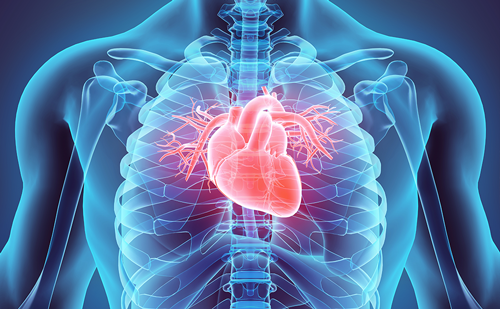Welcome to the summer 2021 edition of Heart International. This issue contains 9 informative review articles on a range of topics which we hope will be of interest to all cardiovascular practitioners, regardless of subspecialism.
We begin with a review by Chu and Gupta, who explore the use of etripamil nasal spray, a novel preparation of a short-acting calcium-channel blocker, for the treatment of acute paroxysmal supraventricular tachycardia in a home setting. Lakshmanan and Budoff then review the potential use of icosapent ethyl, a purified preparation of the omega 3 fatty acid eicosapentaenoic acid, which has shown great promise as an adjunct to established anti-atherosclerotic therapies to further reduce cardiovascular risk. We follow this with a review from Morrison et al., in which they discuss medical therapies for secondary prevention of atherothrombotic events in patients with peripheral vascular disease, with a focus on rivaroxaban as part of a novel antithrombotic regimen.
Recurrent pericarditis is an uncommon clinical entity, but one which has a significant impact on quality of life. Lo Presti et al. review the role of autoinflammatory pathways in the pathophysiology of this condition, and discuss the novel use of the interleukin-1 inhibitor, rilonacept, as a promising treatment option.
Dual antiplatelet therapy is an established treatment to improve cardiovascular outcomes in patients with coronary artery disease, but its role is constantly evolving. Espinoza and Mukherjee review the latest data and clinical guidelines on its optimal use in patients with high risk of cardiovascular disease.
Our attention then turns to cardiac devices. Michael Reardon describes the ACURATE neo™ transcatheter aortic valve replacement system, which has been commercially available in Europe since 2014 and is currently being evaluated in a large randomized trial in the USA.
We then have two review articles on heart failure, a condition that carries a substantial economic health burden. The first, by Rohant and Kennedy, reviews the evolving role of sodium–glucose cotransporter 2 inhibitors from diabetes therapy to the management of patients with heart failure with reduced ejection fraction, both with and without diabetes. The second article on heart failure, by Wand et al., reviews strategies for the ambulatory management of heart failure, including remote haemodynamic monitoring, device-based algorithms and the use of subcutaneous furorsemide for out-of-hospital treatment of worsening heart failure.
We conclude with an informative and up-to-date review in which Jacob et al. summarize the published literature on the ever-controversial topic of complete versus culprit-only revascularization in patients with an acute ST-elevation myocardial infarction with multi-vessel disease.
Heart International would like to thank all authors for their contributions to this edition of the journal. We also express our continuing gratitude to the Editorial Board for their guidance and constructive review of submitted articles. We are grateful to all organizations and media partners for their ongoing support. We hope that you will find this edition enjoyable and thought-provoking. Please also take the opportunity to look at the videos on our website, www.touchcardio.com, which features content from experts in cardiology.
Magdi El-Omar
Dr Magdi El-Omar is a Consultant Interventional Cardiologist at the Manchester Heart Centre, and an Honorary Senior Lecturer at the University of Manchester, Manchester, UK. He graduated from St Bartholomew’s Hospital, London, in 1988 and undertook his postgraduate general medical training in London and Oxford. He then completed his general cardiology training in Birmingham, Oxford and Wales, before subspecializing in coronary intervention. The latter included a 2.5-year clinical/research fellowship in interventional cardiology at the Cardiovascular Research Foundation and the New York University Medical Centre, New York, USA. During his time there, he worked closely with leaders in the field, including Drs Greg Stone, Martin Leon, Gary Roubin, Frederick Feit and Aaron Marcus. Dr El-Omar has been involved in research for over 25 years. He undertook a 2-year British Heart Foundation Junior Research Fellowship in basic science (diabetic cardiomyopathy in a rat model) in 1997–1998, which led to the award of an MD degree by the University of London. He has since been actively involved in clinical research, especially in the fields of acute coronary syndromes and coronary intervention. He has authored more than 65 peer-reviewed articles, mostly in high-impact journals. He has been local principal investigator for several landmark, international, multicentre trials (e.g. HORIZONS-AMI, INFUSE-AMI, TOTAL, TWILIGHT, etc.). He is actively involved in education and training and is a course co-director of the International Complex Cardiovascular Catheter Therapeutics Conference in the USA.












